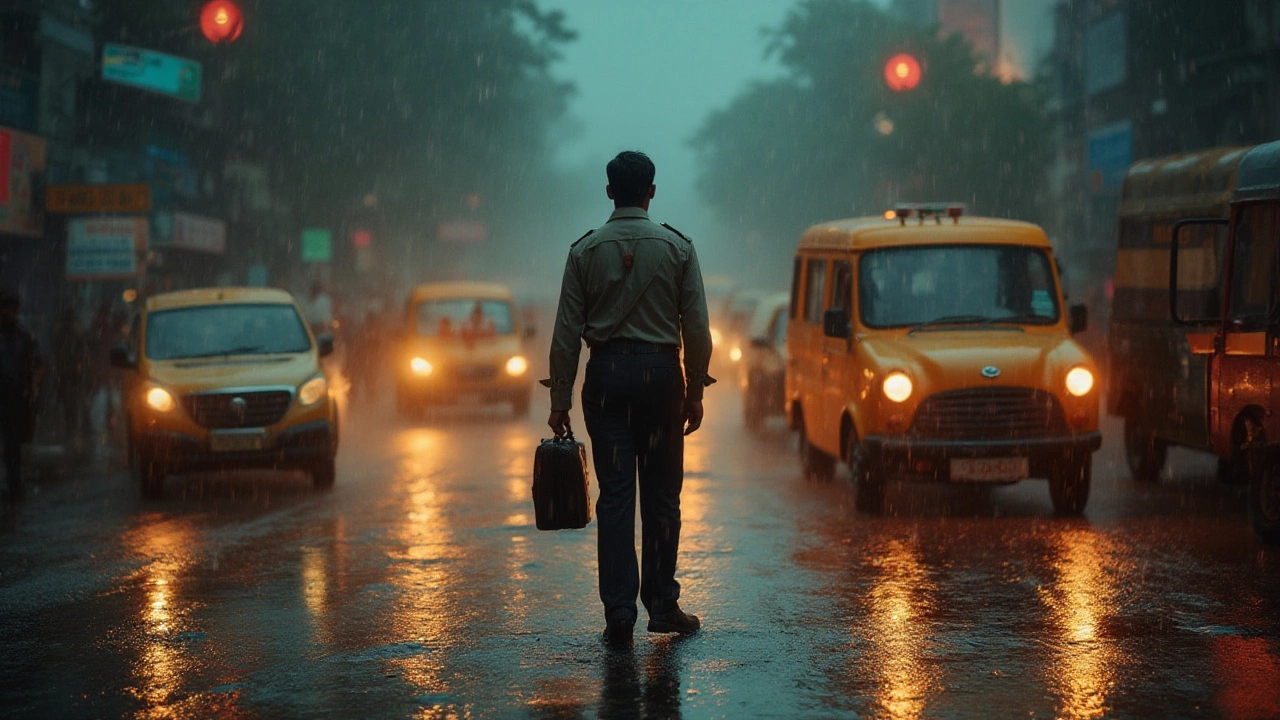Sweaty palms, racing heart, and the kind of stress that sticks with you late into the night—sound familiar? That’s just a regular shift for some people with government jobs. Not all public sector gigs involve cozy desks and scheduled tea breaks. A few jobs out there demand nerves of steel, round-the-clock focus, and levels of patience most of us can’t even imagine. Every year, surveys plop new titles onto the podium for the most difficult government job, but the same heavy hitters keep cropping up. Ever wonder why these roles are so tough, and what it actually takes to survive them?
Why Are Some Government Jobs So Tough?
Most folks think government jobs are a one-way ticket to job security and early retirement. But step into the shoes of a prison warden, an IRS criminal investigator, a border patrol agent, or an Indian Administrative Service (IAS) officer, and you’ll see there’s more sweat than sweetness. The pressure cooker environment doesn’t just come from long hours; it’s the weight of real-world consequences, high-stakes decisions, and the constant risk of upsetting the wrong people. For instance, data from the U.S. Bureau of Labor Statistics in late 2024 ranked law enforcement and intelligence roles in the top 5% for work-related stress and burnout rates among all government jobs.
Political interference, public scrutiny, and complex rules keep these jobs tough. People in high-ranking administrative posts get calls at night when disasters hit, and they’re usually first to answer for failures. Field agents in departments like the FBI or CIA spend months undercover and often risk their lives. Even lower-profile jobs, like 911 operators or air traffic controllers, see incredible psychological strain: a single slip can cost lives. The reason these positions stand apart is the daily combo of critical thinking, people management, and emotional resilience required. It’s not just about skills — it’s about holding up under an invisible but crushing weight.
Spotlight on the Hardest Government Careers
So, which most difficult government job takes the crown in 2025? There’s fierce debate, but usually the front-runners include:
- IAS/IPS Officers (India): Known locally as the administrative backbone, these officers deal with disaster responses, social issues, and tough rural posts where resources are scarce. Getting in is tough (about 180 seats for over 800,000 applicants), and staying in means endless transfers, political pressure, and threats from criminal groups. The psychological burden is immense.
- FBI Special Agents (USA): These agents work unpredictable hours, handle explosive evidence, and spend a ton of time away from family — sometimes in dangerous places. FBI burnout rates hit 24% in 2023, according to a DOJ report, partly because of intense case loads and work-life imbalance.
- Air Traffic Controllers: In the US, the FAA controls over 45,000 flights daily. Controllers have to stay alert for hours, monitor shifting conditions, and respond instantly if anything goes off-script. It’s considered one of the top 3 most stressful jobs worldwide — not just in the public sector.
- Border Patrol Agents: Working on the U.S. southern border can mean 100-degree heat, shifting policies, and danger from traffickers. Agents need to act quickly, witness traumatic situations, and sometimes face hostility from both sides of the law.
- Prison Wardens: Managing large populations of inmates isn’t just about rules. Violence, riots, and organized crime behind bars are real threats. The American Correctional Association reported in December 2024 that serious physical assaults on wardens increased by 15% in the past year.
These aren’t your classic paper-pushing jobs. The hardest roles are often ones you can’t switch off from once you clock out. The emotional toll—dealing with volatile people, tragedy, or the possibility of making life-altering mistakes—makes them a tough choice for many. The numbers don’t lie either. The following table gives a glimpse of the high-pressure realities behind some of these jobs:
| Role | Avg. Weekly Hours | Burnout Rate (2024) | Applicants per Vacancy |
|---|---|---|---|
| IAS Officer (India) | 65+ | 38% | 4500 |
| FBI Special Agent (USA) | 50-60 | 24% | 108 |
| Air Traffic Controller (USA) | 40-50 | 35% | 620 |
| Border Patrol Agent (USA) | 48-55 | 32% | 78 |
| Prison Warden (USA) | 60+ | 41% | 32 |

The Human Cost: Stress, Risks, and (Surprisingly) Perks
On paper, these jobs pay decently—sometimes well above average. But most people don’t account for the invisible costs. Divorce rates, anxiety, and even substance abuse tend to run higher for people in these roles. In a 2024 survey by Mental Health America, federal law enforcement officers were 38% more likely to seek therapy than the general public. Long hours and exposure to traumatic events leave a mark, even for veterans who think they’ve “seen it all.” My neighbor Dave, who has worked air traffic control for 8 years, barely talks about work, but on Sunday barbecues, you can see the weight he carries in his eyes.
There’s the other side of the coin, too. Many of these jobs offer something you can’t buy: the chance to make a huge difference. IAS officers in remote villages have brought electricity to places that never saw light. Border patrol agents have rescued families from human traffickers. Air traffic controllers quietly keep thousands of people safe every day. For some, that sense of purpose outweighs the stress. But if you’re thinking of applying, the perks—like steady pensions, job security, and government housing—don’t come free. You'll need thick skin, and maybe a sturdy dog waiting at home (I can confirm Charlie’s face does wonders for post-work blues).
Toughing It Out: Tips for Surviving High-Pressure Government Roles
If you’re drawn to challenging government careers, there are smart ways to prepare and survive the grind. Here's what real-life pros swear by:
- Mental Resilience Training: Many agencies now offer mindfulness workshops, counseling, and crisis management courses. Learning to recognize stress and deal with it early is vital.
- Solid Support Network: Family, friends, and sometimes pets (kudos to anyone whose tail wags when you walk in) can ground you. Don’t isolate yourself; reach out when the burden feels heavy.
- Know Your "Why": You need a reason bigger than the paycheck, especially on the hardest days. Remind yourself often why you picked the role in the first place.
- Prioritize Health: Small habits, like 30-minute daily walks, regular meals, and sleep, can keep burnout at bay. Agencies often have gyms and mandatory medical checkups—use them!
- Set Boundaries: Your phone will ring. Work will follow you home. Learn to switch off, even if it means starting with just 20 minutes for yourself without screens or emails.
It’s smart to talk to someone already in the job before jumping in. If possible, shadow a worker for a week. Dig deeper than recruitment brochures—find out about the real day-to-day. Small details can matter: does time off disappear at the last minute? Will you need to transfer cities every year? Is the benefit package really as good as posted? Insiders’ answers can prepare you for the stuff they don’t list in the job ad.
So many people sign up dreaming of making an impact—or just landing that gold-plated pension—without realizing what’s actually behind those high walls, secured doors, or endless stacks of red tape. But for the folks who thrive, the combination of challenge and impact makes even the hardest government job worth it—if you’re truly cut out for the fight.
